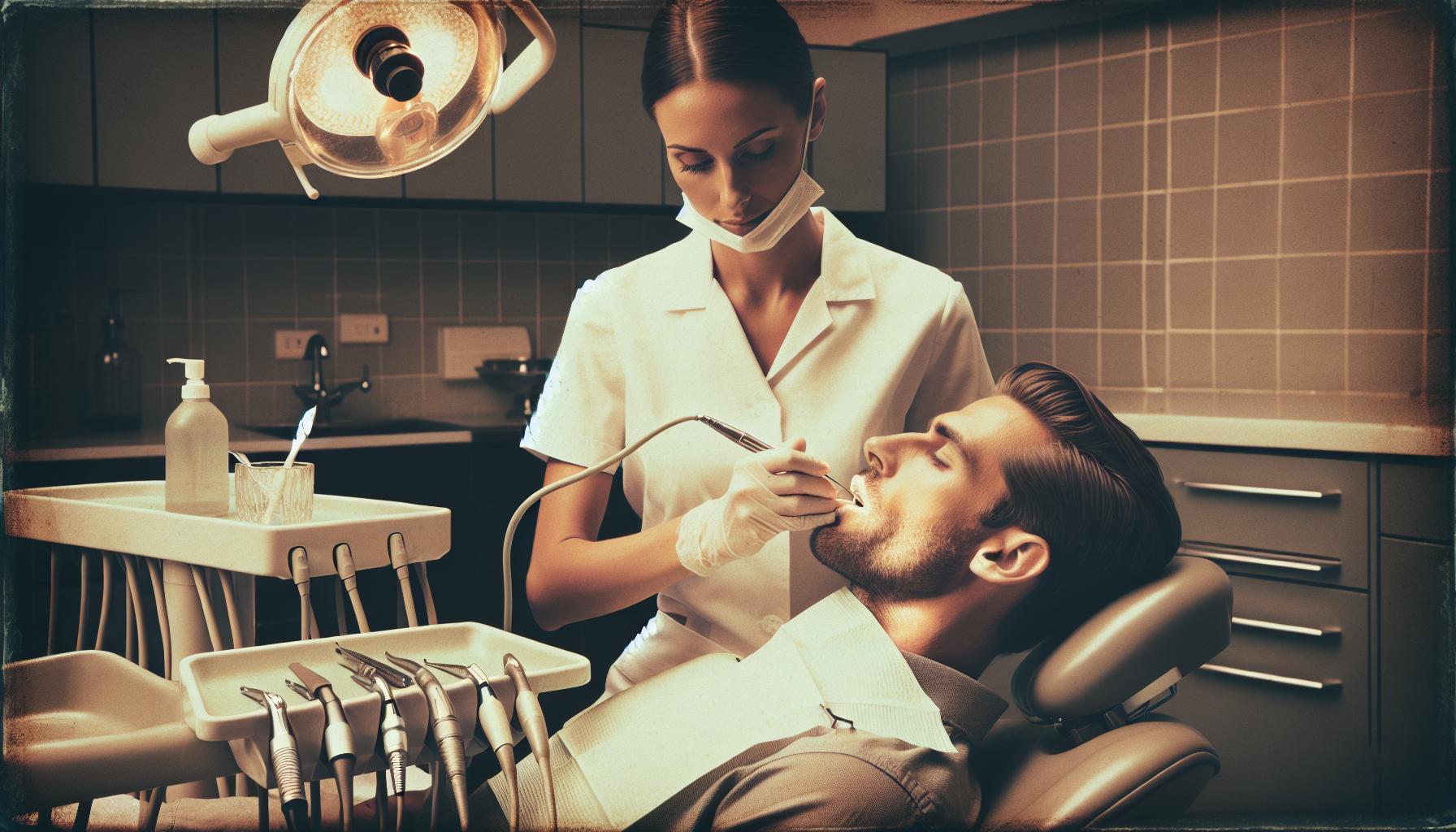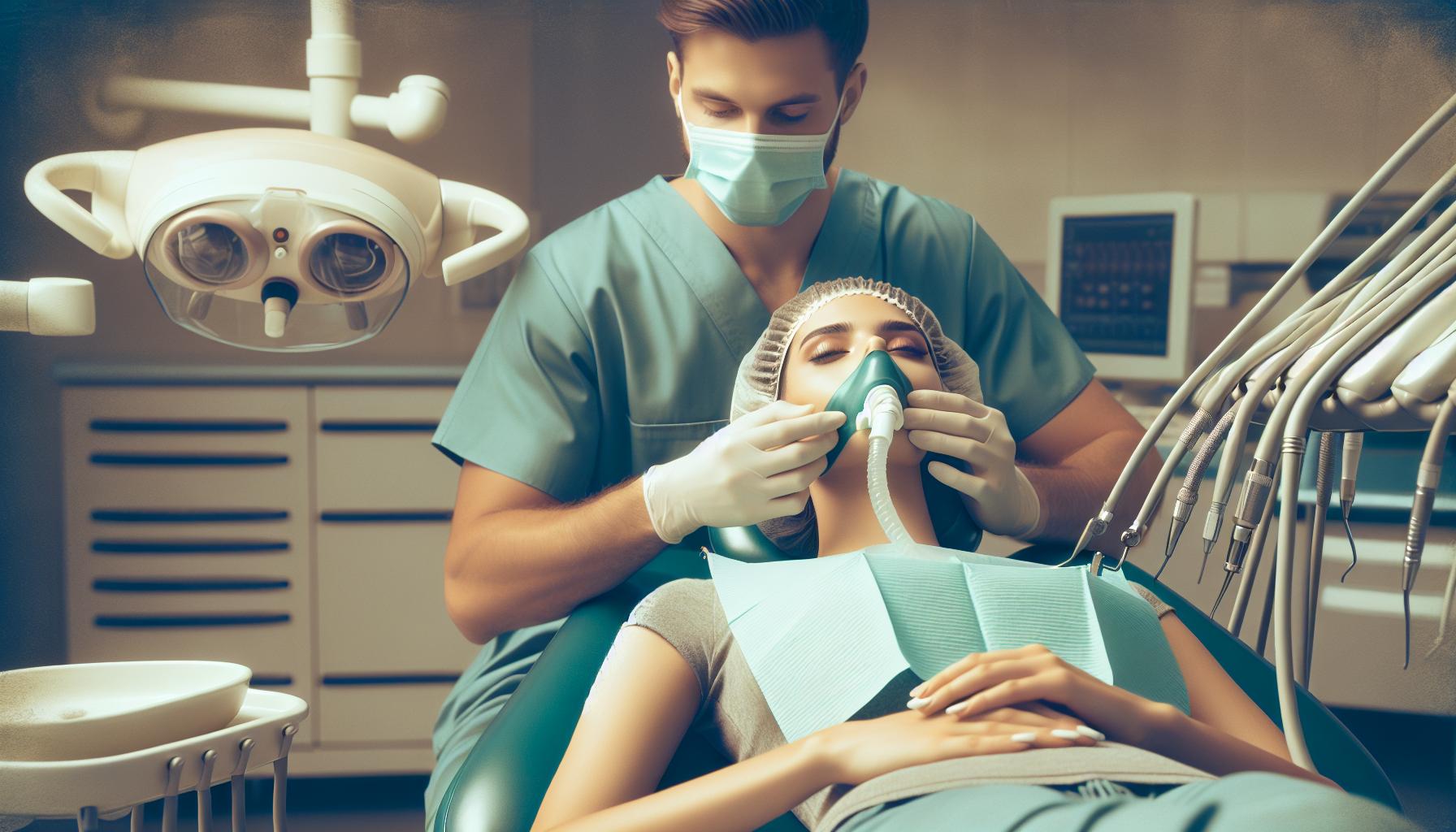Sleep dentistry offers a solution for those who experience anxiety or discomfort during dental procedures. It combines sedation techniques with dental care, making treatments more manageable for various patients. Understanding who qualifies for this approach can help individuals make informed decisions about their oral health and ensure a more pleasant dental experience.
Key Takeaways
- Understanding Sleep Dentistry: Sleep dentistry combines sedation techniques with dental treatment to reduce anxiety and discomfort for patients during procedures.
- Suitable Candidates: Individuals with dental phobias, high sensitivity to pain, complex dental needs, or requiring lengthy procedures are ideal candidates for sleep dentistry.
- Benefits: Major advantages include enhanced pain management and significant anxiety reduction, leading to a more pleasant and cooperative dental experience.
- Medical Considerations: Patients must disclose their medical history, including any medications and allergies, to ensure safe and effective sedation tailored to their needs.
- Monitoring and Recovery: Continuous patient monitoring during sedation is crucial, and patients should arrange for transport and post-treatment assistance due to potential grogginess.
Overview of Sleep Dentistry
Sleep dentistry integrates sedation techniques with dental treatment to enhance patient comfort. It addresses the needs of individuals who experience anxiety or discomfort during dental procedures. This approach employs various sedation methods, including nitrous oxide, oral sedation, and intravenous (IV) sedation. Each method aims to reduce awareness of the procedure while maintaining patient safety.
Candidates typically include those with dental phobias, heightened sensitivity, or complex dental needs. Patients undergoing lengthy procedures may also benefit significantly from sleep dentistry. The goal is to create a more relaxed dental experience, allowing for necessary treatments without overwhelming stress.
It’s crucial for individuals considering sleep dentistry to consult with a dental professional. At Brisbane Dental Sleep Clinic, a thorough assessment of medical history and specific needs leads to personalised sedation options. This dialogue ensures safety and effectiveness during treatment. Understanding these criteria helps patients make informed choices about using sleep dentistry as a viable solution for dental care.
Benefits of Sleep Dentistry

Sleep dentistry provides significant advantages for those apprehensive about dental treatments. It enhances the overall experience by combining sedation with dental care, resulting in more effective and less distressing procedures.
Pain Management
Pain management stands as a primary benefit of sleep dentistry. Sedation techniques, such as nitrous oxide and IV sedation, effectively block pain responses during procedures. Patients often report minimal to no discomfort, allowing dentists to perform complex work efficiently and with precision. Enhanced pain control benefits individuals undergoing extensive treatments, such as root canals or dental implants, where discomfort may otherwise hinder patient cooperation.
Anxiety Reduction
Anxiety reduction presents another crucial benefit. Many individuals experience dental fear, which can lead to avoidance of necessary care. Sleep dentistry addresses this issue by utilising sedation to create a calming effect, allowing patients to undergo procedures without the stress or anxiety commonly associated with dental visits. This reduction in anxiety not only improves patient comfort but also increases the likelihood of maintaining regular dental appointments, promoting better oral health in the long term.
Who Is a Good Candidate for Sleep Dentistry?
Sleep dentistry caters to individuals seeking comfort during dental procedures. Candidates typically include those with specific needs, such as anxiety or sensitivity.
General Considerations
Candidates for sleep dentistry often experience dental anxiety or fear. Individuals with a history of traumatic dental experiences may benefit significantly. Sensitivity to pain or a low pain threshold also qualifies patients for sedation options, as do those requiring extensive or complex procedures. Long procedures that would typically cause discomfort may necessitate sedation, allowing for a smoother experience.
Specific Conditions
Certain medical conditions enhance a patient’s candidacy for sleep dentistry. Conditions like:
- Dental Phobia: Severe fear of dental visits warrants sedation to help relax.
- Gag Reflex: A strong gag reflex can complicate treatments, where sedation allows for easier procedures.
- Behavioral Disorders: Patients with autism or similar conditions may find sedation beneficial for cooperative care.
- Past Trauma: Those with post-traumatic stress related to dental work qualify for assistance.
Patients considering sleep dentistry should consult with a dental professional for an assessment of these factors, ensuring tailored sedation options that enhance safety and comfort.
Potential Risks and Considerations
Candidates for sleep dentistry must consider potential risks and the factors that could affect their treatment. Understanding these elements helps ensure informed decision-making and promotes safety during dental procedures.
- Medical Conditions: Patients with certain medical conditions may face increased risks during sedation, including respiratory disorders, heart issues, or significant obesity. A comprehensive medical history review is essential to assess these risks.
- Medication Interactions: Sedatives can interact negatively with specific medications. Individuals should disclose all medications and supplements taken to avoid adverse reactions.
- Allergic Reactions: Allergies to sedative agents or anaesthetics pose a risk. Testing and thorough discussions with a dental professional will determine suitability for sleep dentistry.
- Recovery Time: After receiving sedation, individuals may experience grogginess or impaired coordination. Arrangements for transportation and assistance post-treatment are vital to ensure safety.
- Dental Procedures: The complexity and duration of the dental procedure influence sedation requirements. Potential complications arising from lengthy treatments necessitate careful monitoring throughout the process.
- Patient Monitoring: Continuous monitoring is crucial during sedation to address any potential issues swiftly. Qualified professionals ensure optimal patient safety throughout the procedure.
- Psychological Factors: Psychological assessments can identify underlying issues that may complicate sedation. Addressing anxiety, depression, or other mental health concerns plays a crucial role in patient preparedness.
Prioritising communication with dental professionals about these considerations enhances the overall experience and supports effective treatment planning.
Conclusion
Sleep dentistry offers a valuable solution for those who struggle with anxiety or discomfort during dental procedures. It caters to individuals with specific needs such as dental phobias or heightened sensitivity. By consulting with a dental professional, candidates can receive tailored sedation options that prioritise their safety and comfort.
This approach not only enhances the dental experience but also encourages regular visits, leading to improved oral health. Understanding the potential benefits and risks associated with sleep dentistry is essential for making informed decisions. Ultimately, it empowers patients to take control of their dental care in a way that suits their unique circumstances.
Frequently Asked Questions
What is sleep dentistry?
Sleep dentistry refers to the use of sedation techniques during dental procedures to help patients who experience anxiety or discomfort. It combines various sedation methods like nitrous oxide, oral sedation, and intravenous (IV) sedation, allowing patients to feel relaxed and minimise awareness of the procedure.
Who qualifies for sleep dentistry?
Candidates for sleep dentistry typically include individuals with dental anxiety, heightened sensitivity, complex dental needs, or those undergoing lengthy procedures. A thorough consultation with a dental professional is essential to determine suitability based on medical history and specific requirements.
What are the benefits of sleep dentistry?
Sleep dentistry offers significant benefits, including effective pain management and anxiety reduction. Sedation techniques help block pain responses and enable patients to face complex procedures with minimal discomfort, improving their overall dental experience and encouraging more regular visits for better oral health.
Are there risks associated with sleep dentistry?
Yes, there are potential risks tied to sleep dentistry. These may include complications related to existing medical conditions, medication interactions, allergic reactions to sedatives, and the need for recovery time. Continuous monitoring during the procedure is crucial to ensure patient safety.
How do I prepare for sleep dentistry?
Preparation for sleep dentistry involves a thorough consultation with your dental professional. They will assess your medical history, discuss sedation options, and provide instructions for the day of the procedure, including any dietary restrictions or medications to avoid beforehand.
How does sedation affect recovery after dental procedures?
Recovery from sedation varies by individual and sedation method used. Some patients may feel groggy or disoriented post-procedure and will need time to rest. It is essential to have someone accompany you home after sedation, as driving is not safe until the effects have worn off.
